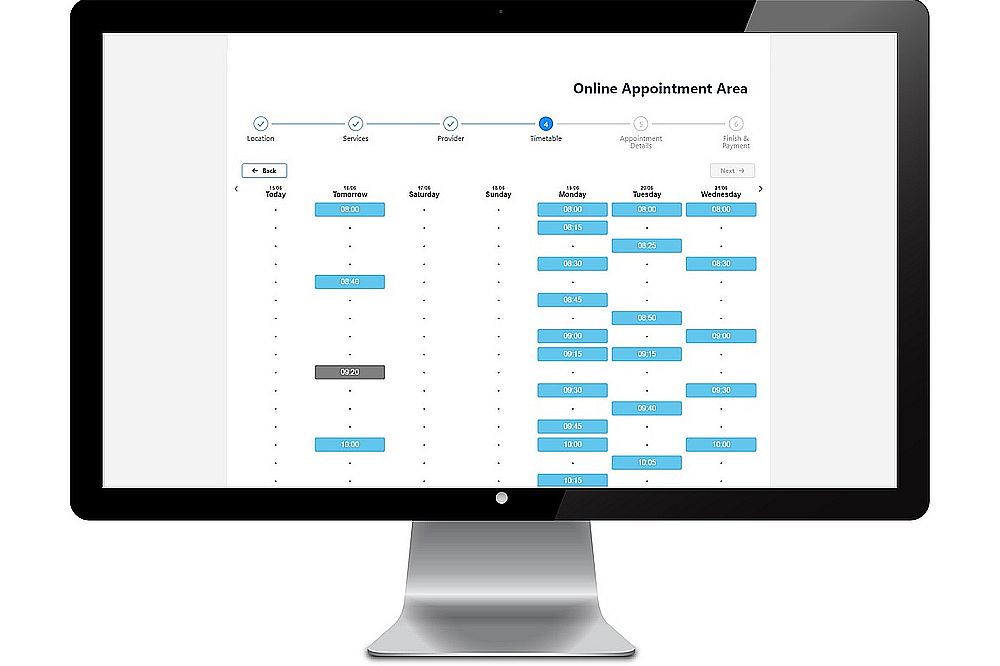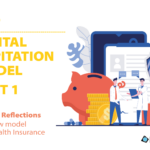The autonomy sought by clients in the self-management of their services is reflected in the proliferation of online appointment booking systems. With these, customers can see the days and times available for the service they need and make a reservation online without having to contact the service provider through any other channel. This is a practice that is becoming increasingly widespread in the restaurant sector and is progressively reaching other businesses. Moreover, this solution has been boosted because of the Covid-19 pandemic where, for example, the attendance quota made it essential to book in advance for certain services or events.
The solution is simple, the business opens its agenda online so that the visitor can access its calendar through its website, Facebook or any other digital platform where it promotes its services. The customer who accesses this agenda can make the reservation by providing a minimum number of data equivalent to those requested when the reservation is made by phone.

Healthcare professionals and hospitals
Doctors, healthcare professionals, health centers and private healthcare hospitals are gradually incorporating this functionality into their schedules to streamline their work and improve service in a sector where waiting lists are constantly growing. However, much remains to be done, both to extend the solution and to improve its functional scope, with room for improvement especially in hospitals, with more complex agendas than those of an individual professional.
The online appointment gives patients proactivity, improving the service, while the health center lightens its workload by not having to have so many staff scheduling appointments by phone. If the advantages are obvious, why are there still so many centers and professionals who do not have this solution? Why are there so many hospitals with inefficient online appointment services that end up being dissuasive for the user?

These are some of the reasons:
- Online booking software solutions are quite generic and are designed for any type of business, so they do not always adapt well to the peculiarities of physicians and healthcare centers: variety of agendas and locations, services that can and cannot be scheduled, cancellations, etc.
- The few specialized systems in the healthcare sector are intended for structures with large schedules, such as hospitals, and have complex maintenance models with a high dependence on the system provider, who must configure all or part of the schedules.
- The agendas of doctors, centers and hospitals cannot be rigid, in fact, they suffer many changes because medical professionals have to adapt to emergencies and other types of contingencies In other words, it is necessary to modulate the agenda easily, which sometimes cannot be done with the usual software.
- Individual practitioners do not have specific solutions, but are linked to their practice software, so if this functionality is not available in their package, they end up desisting from incorporating it into their management.
- An adequate online appointment solution requires integrating ethe online appointment system with the regularly used agenda or agendas, since it is inefficient to use more than one agenda or manually update the online appointment entries in the regularly used agenda.

A specialized online appointment system for healthcare providers needs:
- An easily configurable structure for the user so that he can structure specialties, service channel (face-to-face or online), prepayment or post-service, vacation period, changes in the schedule due to unforeseen events, cancellations… in a simple way, without a great dependence on the software provider.
- Possibility and ease of centrally managing several agendas of different doctors, specialties or located in different places and that the professional has all their appointments in a single agenda, regardless of whether the reservation has been made by telephone or online.
- To be flexible and allow adaptation to the different changing needs of the center: modification of appointments and of the health professional, cancellations, cancellations with penalty, being able to do so with a high degree of personalization.
- The patient must be able to make a reservation in a simple way, locate the professional they are interested in, the service they need, the time and day they can attend among those available and do so by providing basic, not excessive information, the essentials that the center or sanitary needs.
- The clinic must have the ability to easily manage waiting lists, i.e., be able to fill the gaps of cancelled appointments and give clients the option to move their appointment to one of the available slots.
- The online appointment system must be integrated with a payment gateway that enables the total or partial advance payment of services, at the time the patient makes the reservation.
- It is necessary for the system to have a support team that can intervene quickly in the event of problems or incidents, without the center’s service being reduced due to technical problems.
e-citasalud
Delonia’s online appointment system for healthcare professionals and healthcare centers – e-citasalud – has been developed specifically thinking about the complexity of the healthcare sector, its needs and unmet demands. The objective is to provide a versatile solution that allows professionals and centers to provide this service to patients in a simple way and adapted to the specific needs of the center, its structure of doctors and services. If care is the key to customer loyalty, this solution is decisive in attracting new customers and easing the administrative work of managing schedules. The result is more customer traction, better service and greater efficiency.






